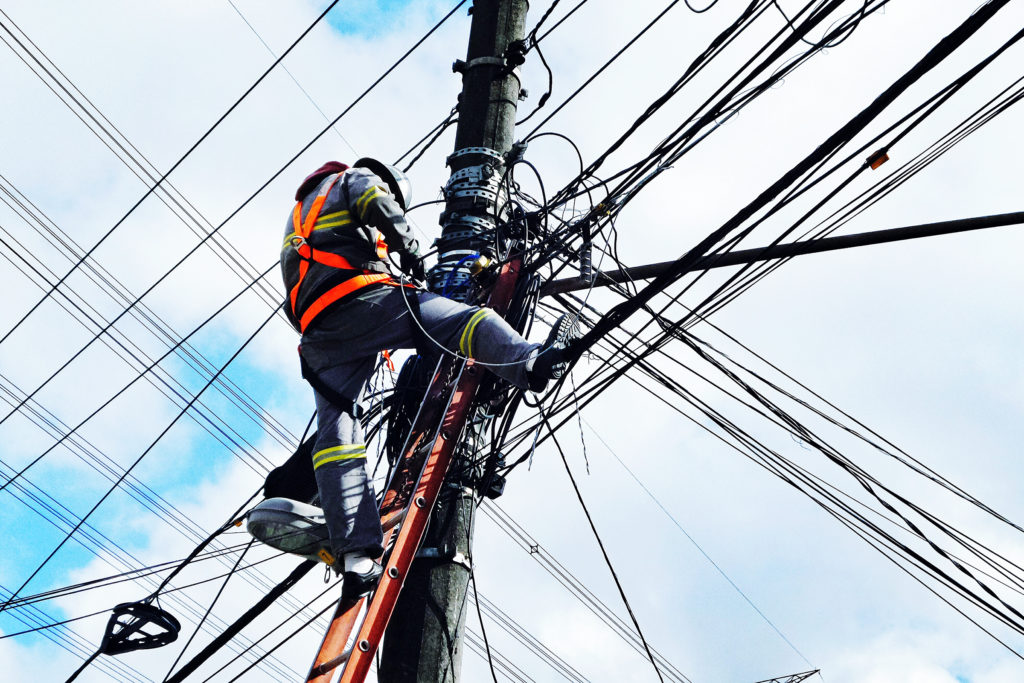By , September 1, 2016
Why Utility Poles Are So Important to the Future of the Internet
There are so many technologies poised to play a major role in the future of the Internet. But there’s one you may have forgotten about: the utility pole.
Utility poles have become a flashpoint in the on-going battle between Google and entrenched telcos like AT&T and Comcast. Earlier this year, Louisville, Kentucky passed a so-called “One Touch Make Ready” law aimed at making it easier for companies like Google to string new cables along existing utility poles, and AT&T is now suing the city to reverse the law. Next Tuesday, Nashville, Tennessee city council will vote on its own similar law. City officials and Internet activists across the country will be watching what happens.
If a new service provider wants to add its cables to a utility pole, the existing cables on the pole have to be rearranged first. The way it works today is that each company that owns one of those cables has to send out their own crew of technicians. AT&T would send one crew, Comcast would send another, Level 3 would send a third, and so on, until all the necessary cables had been moved. This process is called “make ready,” and as you can imagine, it can take months for all the different players to move their cables.
This is a big problem for Google. Or rather, it’s a big problem for Access, the Google spin-off that runs the ultra-high-speed Internet service Google Fiber. The company announced in January 2015 that it would offer its service in Nashville. But according to Nashville Scene, Google Fiber was only available in four buildings in the city as of July. Google Fiber blames its slowness in part on the slowness of the make ready process. According to Google, more than half of the 88,000 poles it needs to attach cables to in Nashville will require make ready work. Only 33 of those have already been made ready. That’s why it’s pushing the “one touch make ready” rules so heavily.
The One Touch rules would require that the owners of the utility poles agree to a single contractor that could move all the different cables all at once. That way, Google Fiber–or any other company that wanted to add cables to a utility pole–could just call up the owner of the pole and ask the owner to make it ready. The other companies that have cables on the pole wouldn’t have to do a thing.
AT&T has blamed this slowness of the process on the Google Fiber team, claiming the company has made many errors in its filings. But even if that’s true, it’s pretty clear that one touch would be a more efficient process. Proponents, such as the Fiber to the Home Council and Next Century Cities, argue that this would save everyone involved money, and lead to more reliable services for consumers because there would be fewer opportunities for technicians to accidentally break something while moving cables around. But One Touch should, in theory, make things cheaper for everyone, including companies like AT&T. After all, AT&T also has to wait for every other service provider to rearrange their cables every time it wants to add new cables too. Yet the company opposes the rules.
AT&T Tennessee spokesperson Joe Burgan told the Nashville Scene that the company worried that allowing outside contractors to move its cables might violate its union contracts and put public safety at risk. Meanwhile, it’s suing Louisville, claiming the city doesn’t have the authority under state and federal law to regulate utility pole access (something the Fiber to the Home Council argues simply isn’t true). AT&T has also argued in a recent blog post that the One Touch rules give Google preferential treatment. But fellow telco Level 3, which wouldn’t compete directly with Google Fiber, has come out in favor of One Touch.
These concerns aside, it’s hard not to conclude that what really worries AT&T is that the One Touch laws will make it easier for competitors to enter markets that have long been too expensive for new comers. Yes, Google Fiber will likely be the first beneficiary of such a law. But even if Google Fiber pulls out of Nashville, the One Touch laws would make it easier for other Internet providers to deploy services their services in the city as well. In that sense, Nashville and Louisville are showing the way for the rest of the country.
(19)
